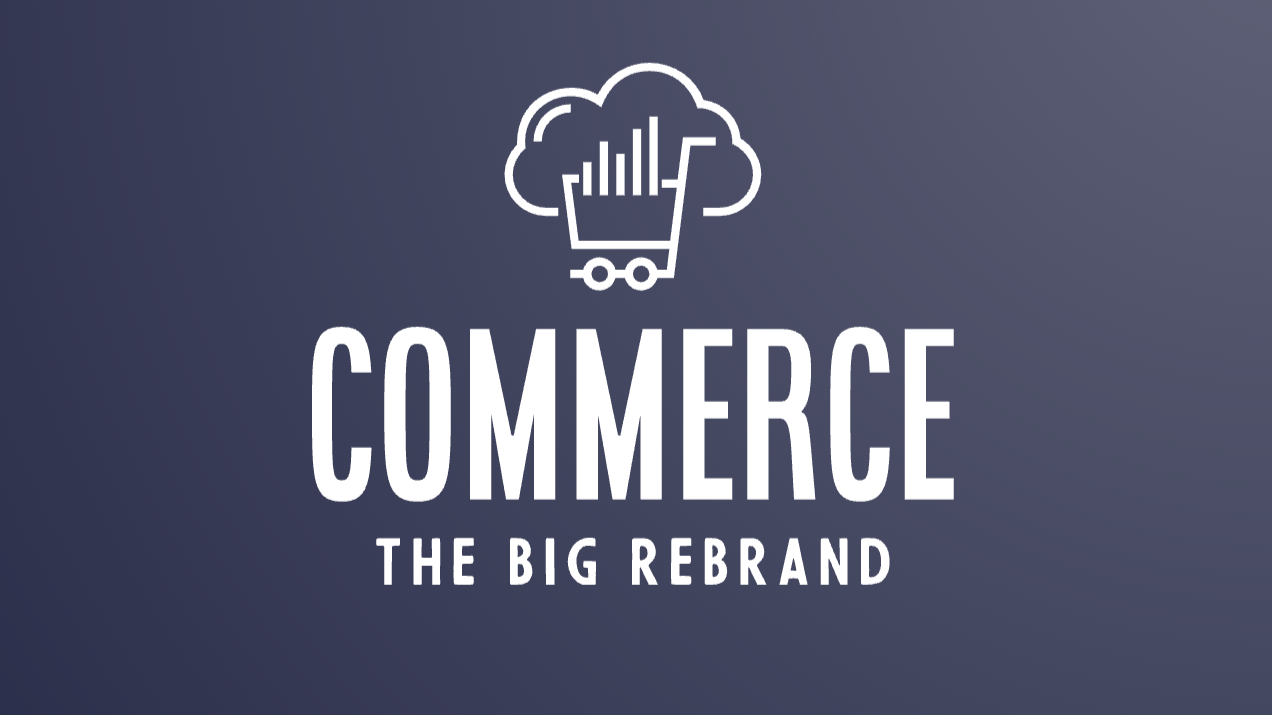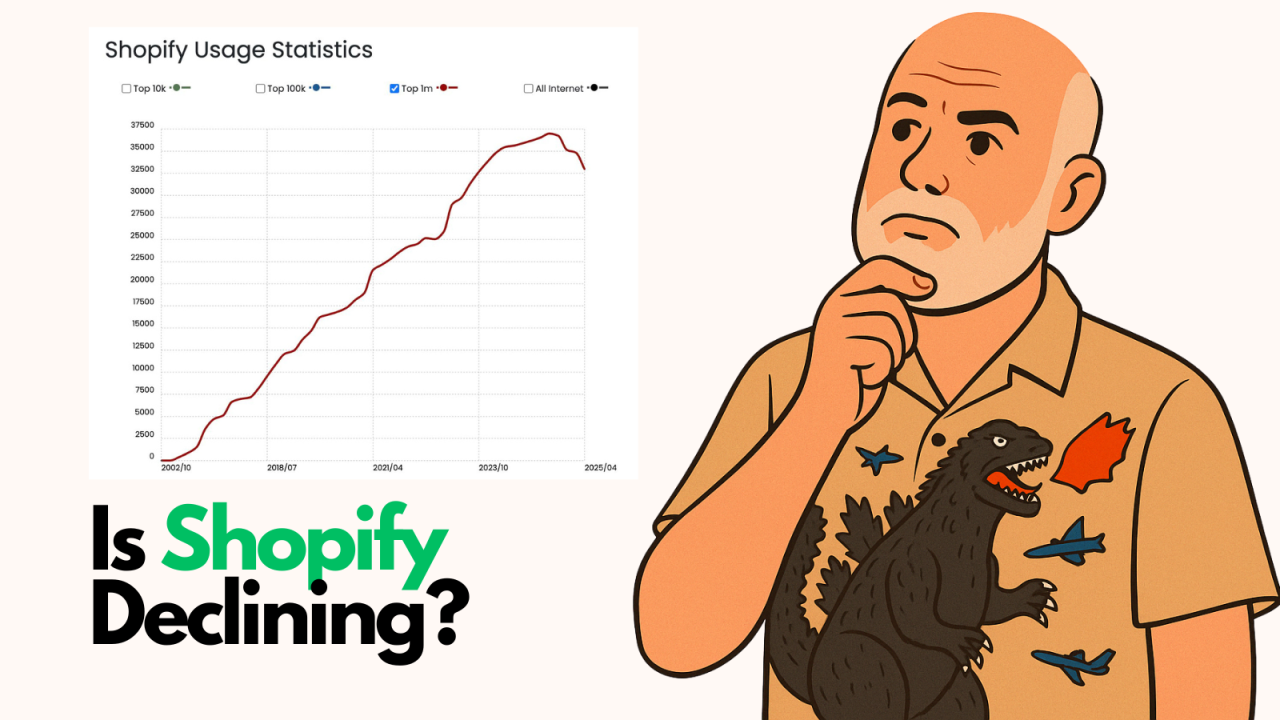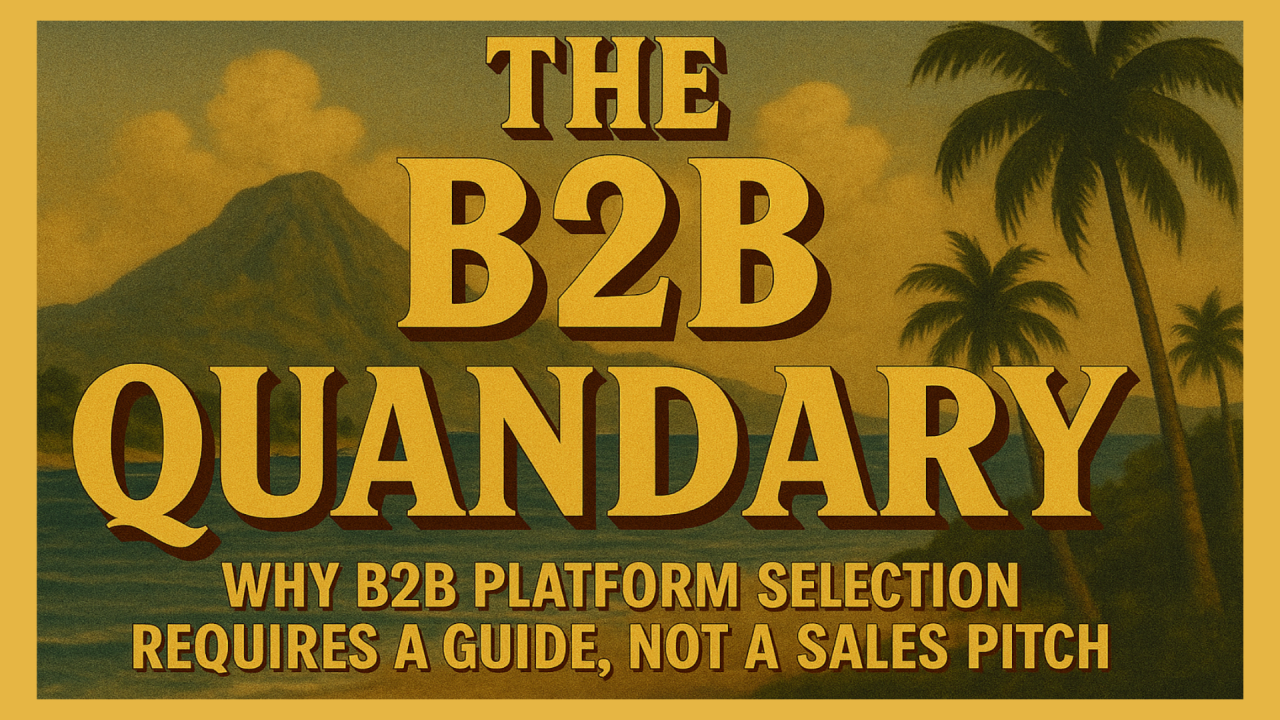
OR When the Shopify Kool-Aid Gets Too Sweet
It's 2009, and I am convinced that Magento will meet every ecommerce need imaginable.
"You need OSCommerce!" someone suggests. "Why? Magento can do that better," I reply confidently. "What about Zen Cart for your small business client?" "Don't be ridiculous. Magento can handle that too." "How about a B2B solution with complex pricing tiers?" "Magento can do that." "A simple DTC site with three products?" "Magento is perfect for that as well!"
I was the Magento zealot, the true believer. Despite the platform requiring a small army of developers, a budget that would make executives sweat, and server infrastructure that resembled NASA mission control, I remained steadfast. Who cares if merchants needed $30,000 just to launch a basic store? Who minds if every customization requires diving into thousands of files of code? The power is worth it!
Then along came Shopify, wielding simplicity like a sledgehammer against Magento's fortress of complexity. And boy, did they demolish some walls. The Magento community's collective jaw hit the floor as merchants flocked to this new, shiny platform that let them sleep at night instead of troubleshooting database issues at 3 AM. No more $500 monthly hosting bills. No more six-figure implementation costs. No more waiting weeks for simple feature changes.
Shopify proved what should have been obvious: not every merchant needs or wants the burden of ultimate flexibility when they're just trying to sell products online. They exposed the emperor's new clothes; Magento's "solution for everyone" approach was leaving many merchants poorly served.
But here we are, years later, and I'm experiencing the strangest déjà vu. Only now, I'm noticing something familiar in the enthusiastic Shopify community. I once had that same certainty, that one platform can be the perfect solution for everyone. The zealotry has simply changed hands.
Let's address the elephant in the room: Shopify isn't the universal solution its most passionate advocates claim. While scrolling through Twitter or LinkedIn, you've undoubtedly seen the declarations, "Just use Shopify!", offered as a one-size-fits-all prescription for every ecommerce ailment. While well-intentioned, this advice glosses over fundamental limitations that make Shopify unsuitable for many businesses.
The reality is that when you build on Shopify, you're essentially renting space in someone else's house rather than owning your own property. Your entire business exists at the discretion of Shopify's terms of service.
You run these risks: merchants wake up to find their stores suspended, their whole livelihood suddenly inaccessible, over policy interpretations they didn't even realize they were violating. When your appeal process is an email to support, that should give you pause.
This platform dependency creates vulnerabilities rarely mentioned in the breathless praise of Shopify's ease of use. Consider the B2B merchant who discovers that customer groups and custom pricing tiers, standard requirements for their business, require cobbling together multiple third-party apps at additional monthly costs.
Or perhaps you're expanding into another brand and suddenly realize that since you're changing brands, you need to establish yet another backend store entirely, or venture into the complex world of headless frontends, a far cry from the simplicity that attracted you to Shopify initially.
Or you're the expanding international brand discovering that Shopify's multi-currency handling requires yet another monthly subscription and significant developer time to implement correctly. What started as "easy" gradually transforms into "easy, plus exceptions, plus workarounds, plus integrations.”
The customization ceiling hits particularly hard for innovative merchants. Shopify's much-touted simplicity becomes its liability when your business model requires anything that strays from the standard DTC playbook. What begins as "we just need this one custom feature" can quickly become "this is fundamentally impossible within Shopify's architecture." I've watched merchants spend tens of thousands trying to force Shopify to do something that other platforms handle natively.
Perhaps most concerning is what happens when your business grows into complexity that Shopify wasn't designed to accommodate. The migration away from Shopify is far more painful than the migration to it. Your data, your customizations, your particular setup, all of it becomes challenging to extract and reconstruct elsewhere. You don't just lose your monthly subscription investment; you lose the foundation of how your business operates online.
None of this means Shopify is bad, it just means Shopify isn't universal. It remains an excellent choice for specific business types, exceptionally straightforward DTC brands with standard product types, and conventional fulfillment needs. However, the moment your business requires sophisticated B2B functionality, complex marketplace operations, or substantial customization to your selling process, the limitations become not just inconvenient but potentially existential threats to your business model.
The Shopify zealots aren't wrong about what Shopify does well. They're just suspiciously quiet about what it doesn't. And in that silence lies the trap for merchants who discover the limitations only after they've built their entire business on a foundation they don't control, can't fully customize, and might outgrow faster than expected.
So what's the real-world impact of this platform monotheism? It forces square-peg businesses into Shopify's round holes, often at tremendous cost. I recently consulted with a consumer products company managing multiple brands with plans to add more in the future. During their platform selection process, Shopify representatives assured them that multi-brand management would work seamlessly, yes to every concern and requirement.
It felt suspiciously like they wanted to close the deal and let some integration agency handle the execution.
Spoiler alert: I gave the client a balanced choice. Here are the factors
The CEO's previous company was on Shopify and they moved from Magento.
They were dead set on choosing Shopify (And not Magento)
All I did was present some facts and costs.
They didn't choose Shopify.
They chose a different platform.
(You can DM me to ask about this)
This pattern repeats itself consistently across different business types. Companies are sold on simplicity but end up paying premium prices for complexity, either through expensive app subscriptions, custom development, or painful business compromises.
The Shopify sales approach seems increasingly aggressive, culminating in their upcoming "Outreach Challenge" starting May 12-14. During this period, they're mobilizing partner agencies to conduct a high-pressure lead generation sprint targeting merchants on other platforms like Adobe Commerce and Salesforce. What's concerning is the incentive structure.
Agencies receive cash bonuses for submitting leads regardless of whether Shopify is actually a good fit for those merchants.
This isn't a partnership, it's a bounty hunt with merchants as the prey.
The internal language focuses on "positioning," "qualifying," and "submitting," not understanding merchant needs or determining platform suitability. Agencies are being armed with battlecards containing questionable claims like "40-70% TCO reduction" without context or substantiation, while being instructed to reframe or dismiss legitimate merchant concerns about customization limitations and B2B functionality gaps.
By the time merchants realize the gap between what they need and what the platform natively provides, switching costs have mounted so high that many just resign themselves to suboptimal solutions. The real tragedy is that agencies should be trusted advisors putting merchant needs first, not platform pawns chasing referral bonuses.
What's truly valuable here isn't any specific platform recommendation; it's the freedom to choose based on your business requirements rather than industry groupthink or high-pressure sales tactics. A diverse ecommerce ecosystem is like having a complete toolbox instead of just a hammer. The right tool for the right job isn't just a saying, it's the difference between thriving and merely surviving online.
For merchants caught between conflicting expert opinions and aggressive platform campaigns, remember this: real partners work with you, not on you. If you're contacted by an agency suddenly eager to pitch Shopify during this period, question whether they're offering thoughtful comparisons or reading from a script, whether they're helping you explore options or rushing to close a deal.
The implications extend beyond individual businesses to the entire industry. The healthiest ecommerce ecosystem is one where multiple platforms thrive, each innovating in their sweet spots and competing to serve different merchant segments. When we all gravitate toward a single solution, especially under pressure, we ironically end up with fewer innovations and higher costs as that platform faces less competitive pressure to improve. Platform diversity drives innovation, specialization, and ultimately better solutions for merchants of all types.
The most successful merchants I know aren't platform zealots. They're pragmatists who choose the solution that best matches their specific business requirements, even when that means swimming against the popular current. They recognized that while following the crowd feels safe, it doesn't necessarily lead to optimal outcomes for their unique situation.
Any Ecosystem Can Solve Core Limitations.
Whether it's Shopify's app store, Magento's extension marketplace, or WooCommerce's plugin directory, additional functionality comes with costs. Every integration adds subscription fees, potential conflicts, performance impacts, and maintenance concerns. When your core business needs require numerous third-party solutions to function, you're not just paying for convenience; you're building a fragile dependency network. I recently worked with a BigCommerce merchant whose entire tax compliance system collapsed when a critical extension pushed an update that conflicted with their checkout customizations. Sometimes native functionality is worth its weight in gold, regardless of your chosen platform.
Open Source Platforms Always Cost More Than SaaS Solutions.
This oversimplification ignores the hidden costs of platform misalignment on both sides. While Magento and WooCommerce require infrastructure and maintenance investments, SaaS platforms like Shopify and BigCommerce often impose transaction fees and subscription costs that scale with your business. I've seen WordPress/WooCommerce merchants save thousands compared to equivalent Shopify setups, and I've witnessed Shopify merchants operate far more efficiently than their self-hosted counterparts. The equation depends entirely on your specific requirements and resources. You're buying a solution when a platform natively supports your core business functions. When it doesn't, regardless of licensing model, you're purchasing a problem with a subscription plan attached.
Platform Switching is Too Disruptive to Be Worth It.
Yes, migration is challenging for any platform, but so is continuously wrestling with a poor fit. One retailer I worked with spent nearly two years forcing WooCommerce to handle their complex inventory management needs before finally migrating to Shopify Plus. Another spent 18 months trying to make Shopify work for their B2B requirements before switching to Adobe Commerce. Both had the same regret: not switching sooner. The temporary pain of migration is often less costly than the ongoing pain of working against your platform's natural strengths. Migration is like a root canal, unpleasant, yes, but far better than the alternative of persistent, worsening pain that never ends.
There Must Be One Best Platform Overall.
This is perhaps the most pervasive myth. Magento defenders, Shopify champions, BigCommerce advocates, and WooCommerce enthusiasts all have valid reasons for their preferences based on the specific business problems they're solving. Shopify's simplicity is genuinely transformative for certain businesses, just as Magento's flexibility is necessary for others. I've seen companies thrive on lightweight solutions like Wix eCommerce, while others require the enterprise capabilities of commercetools or Salesforce Commerce Cloud. The question isn't which platform is universally best, but which fits your needs, resources, and growth trajectory.
You Should Always Choose the Most Popular Platform.
Platform popularity certainly brings benefits, such as larger developer communities, more integrations, and established knowledge bases. But popularity doesn't equal suitability. Adobe Commerce might be overkill for your simple store, while Shopify might be frustratingly limited for your complex B2B operation. I've watched merchants succeed brilliantly on "underdog" platforms like BigCommerce or Craft Commerce because these solutions happened to align perfectly with their specific requirements. The crowd isn't always wrong, but it isn't always right for your particular situation either.
Let's acknowledge the elephant in the room: agencies and developers often have substantial economic interests in promoting specific platforms. I was an agency owner who drank the Magento Kool-Aid by the gallon. Every problem had a Magento solution because that's what kept our agency profitable and our developers busy. (Seriously, Magento can solve everything)
The best career advice I ever received came from our Magento Partner rep, James C Williams. He pulled me aside and said, "Brent, you need to have another platform under your belt as an agency. It makes you stronger and more credible to clients. They'll know you're not in it just for Magento, it shows you have some impartiality and are on the client's side, not just the platform's side."
That advice changed our agency's trajectory. When we started evaluating clients' needs without defaulting to our preferred solution, we actually won more business. Can I say that again?
WE ACTUALLY WON MORE BUSINESS
Clients could sense the difference between a genuine recommendation and a foregone conclusion dressed up as advice.
Merchants need to understand this dynamic: when an agency has invested years building expertise in Shopify development, recommending a different platform literally costs them money in the short term.
This doesn't make agencies villains or their advice inherently wrong. It just means you should understand the economic incentives at play when receiving platform recommendations. The best partners will acknowledge their biases openly and sometimes even refer you elsewhere if your needs truly don't align with their specialties. As a merchant, seek advisors who start by deeply understanding your business requirements rather than immediately prescribing their preferred platform.
Platform choice comes down to deal-breakers, not feature checklists. A platform might excel in 9/10 categories but fail in the one area critical to your business. This is why the "best platform" conversation is often misleading. There's only the best platform for your specific requirements.
This reality becomes particularly apparent at enterprise scale. In private conversations with senior technology executives who've requested to remain anonymous, I've heard consistent concerns about Shopify's enterprise capabilities. One leader at a major SaaS company recently shared their frustrations after completing an integration project with a large enterprise client. Despite receiving multiple executive-level exceptions to standard API limitations and dedicated support, the platform still couldn't properly handle fundamental requirements like alternative payment methods, multi-platform processing, and even basic catalog structures needed for their business model.
"It's not just functional limitations," the executive confided. "There's something fundamentally fragile about the platform when pushed beyond its comfort zone. The entire architecture becomes an anti-pattern when addressing real B2B challenges." What's particularly telling is that this wasn't coming from a competitor or critic; this was from someone whose job was to make the integration work successfully.
These experiences rarely make it into public case studies or marketing materials. The companies involved have invested too much to discuss the limitations publicly, and the platform vendors certainly aren't highlighting their enterprise shortcomings. But these behind-the-scenes realities underscore why abstract platform debates miss the point entirely.
Ask yourself: What functions are absolutely non-negotiable for your business? What would cause daily pain if not handled elegantly? These deal-breakers should drive your platform decision more than general reputation or popularity. A platform that handles 90% of your needs brilliantly but fails catastrophically on your core business requirements isn't a 90% solution. It's a 0% solution with attractive window dressing.
My journey from Magento enthusiast to platform pragmatist taught me that the best platform isn't Shopify, Magento, BigCommerce, Shopware, or any single option; it's the one that aligns with your specific business needs while requiring the fewest compromises. This realization has sparked something bigger than I initially anticipated.
I'm currently conducting a comprehensive analysis across ecommerce platforms by interviewing merchants, developers, and industry experts. What started as a small research project has grown exponentially as people reach out privately to share their experiences, both triumphs and frustrations, with various platforms. The stories range from surprising successes to costly disappointments, and they're revealing patterns that challenge the conventional wisdom about platform "best practices."
This is where you come in. I want to hear from you, regardless of which side of the platform divide you stand on. Are you a Shopify success story who found the perfect fit for your business model? I want to talk to you. Did you find another platform that better served your specific needs after trying Shopify? I'd love to hear that story, too.
I'm particularly interested in the unicorn case: merchants who were actually told by Shopify that they weren't a good fit! These honest conversations about platform limitations seem vanishingly rare in today's marketing-driven landscape, but they're incredibly valuable data points.
Send me a direct message if you'd prefer to keep your experience private, or comment below if you're comfortable sharing publicly. Either way, your perspective contributes to a more nuanced understanding that can help other merchants make better-informed decisions.
Perhaps the most liberating realization in ecommerce is that there is no universally "best" platform, just the right platform for your unique business at this particular moment in its evolution. And that choice deserves to be made based on clear-eyed analysis, not platform tribalism or marketing pressure. Let's build that resource together.

Following up on my earlier post about BigCommerce's rebrand announcement, I got my hands on theCleveland...

By Brent W Peterson AI vs Shopify: Is Platform Dominance Ending in 2025?

The B2B OG Reality Check In 1995, I built my first B2B website for my then computer assembly company. It...